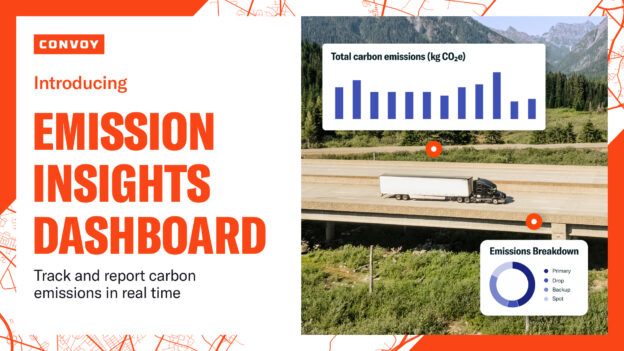2 Ways To Act On Sustainability And 2 Reasons Why You Should
Sustainability • Published on February 27, 2021
In October of 2020 we surveyed 122 transportation professionals about the importance of sustainability to their businesses. Our results confirmed the importance of sustainability in the transportation industry – and shed light on some interesting themes. More than 80% of respondents from companies such as The Home Depot, Molson Coors, and Nestlé said that sustainability is important or very important to their business.
The full report provides insight into the importance of sustainability and also how companies are taking steps to improve their environmental and social competencies. Here are 2 strategies to take action towards sustainability and 2 reasons why you should – based on the data we gathered.
2 ways to act on sustainability
1. Shippers can integrate sustainability into their transportation departments and their carrier selection process
One of the most effective methods of increasing the confidence in supply chain sustainability is to begin evaluating carrier relationships through the lens of sustainability. This can begin by conducting an assessment of carriers based on environmental or social practices. Questions to start with include asking if carriers have environmental goals, if their drivers are trained in efficiency techniques, and what the overall fuel-efficiency of their fleet is. A more robust program could be formalized by including sustainability-related criteria into carrier contracts. Of the 122 companies that we surveyed, here is how they report the steps they are taking to integrate sustainability into the supply chain.
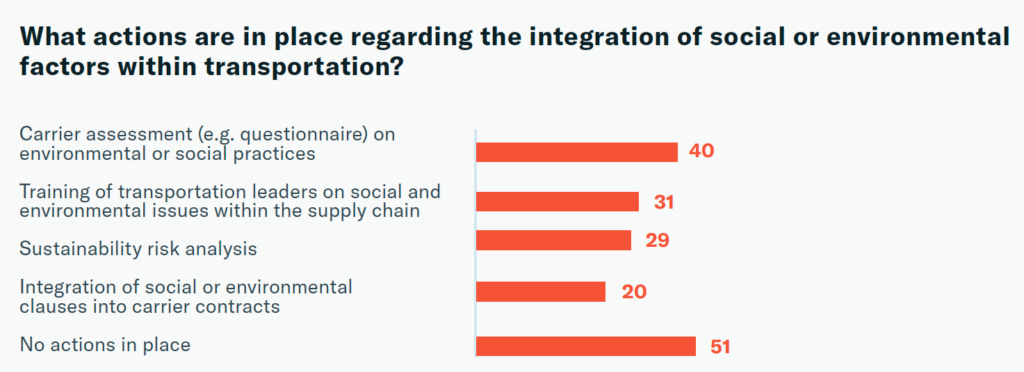
2. Start by selecting and implementing a technology or process improvement that will improve your transportation efficiency
There are many individual improvements that can be put in place in order to improve overall sustainability. Our responses centralized on about 10 of these concrete strategies. In order to get started, pick one of these processes that you are not currently doing and implement it to improve your baseline. Many of our respondents also reported having many of these techniques in their long-term plan for sustainability. By planning out the next 2-3 years of sustainability upgrades, your company can make many small steps add up to big efficiency gains.
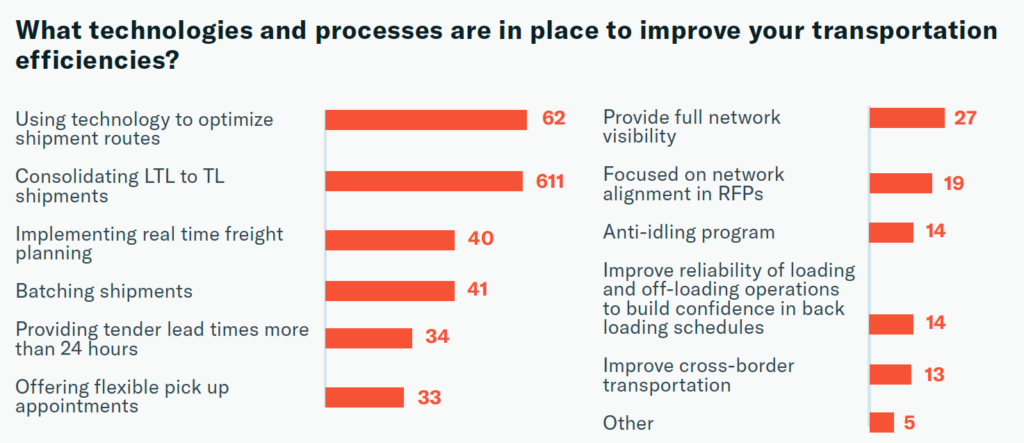
Michelle Jordan talks about the three specific improvements that Stein Fibers is focused on implementing at the moment:
“In office, transitioning from paper to paperless. In regards to shipping, dropping trailers when possible, so drivers aren’t sitting with idling trucks for loading/unloading. Combining partial shipments and doing 2 picks/2 drops rather than using LTL for smaller loads.” Michelle Jordan, Logistics at Stein Fibers
2 Reasons why you should
1. Sustainability is here to stay
Sustainability is not a fad – it is quickly becoming something you need just to get in the door. Our respondents agree, with more than 70% of them expecting to increase their investment in sustainability in 2021 while no companies expected their investment to decrease. From both an environmental and social point of view, it is becoming critical that the transportation industry is taking specific actions to measure and improve on sustainability metrics.
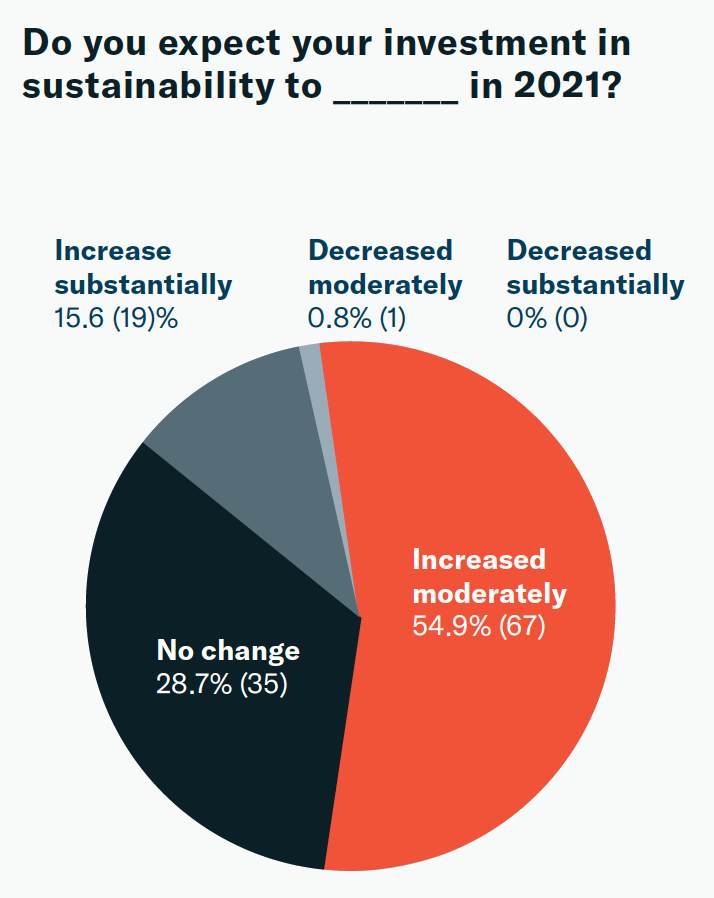
2. Customers are the driving force for sustainability
Decreasing the environmental impact of purchasing products has quickly become a key purchasing consideration for retailers and end users. More than 50% of our respondents said that the driving force behind sustainability is coming from their customers. This signal is cascading throughout companies from transportation departments all the way up to executives and board rooms. At Convoy, we expect sustainability pressure to continue to increase from all of these sources in the immediate future.
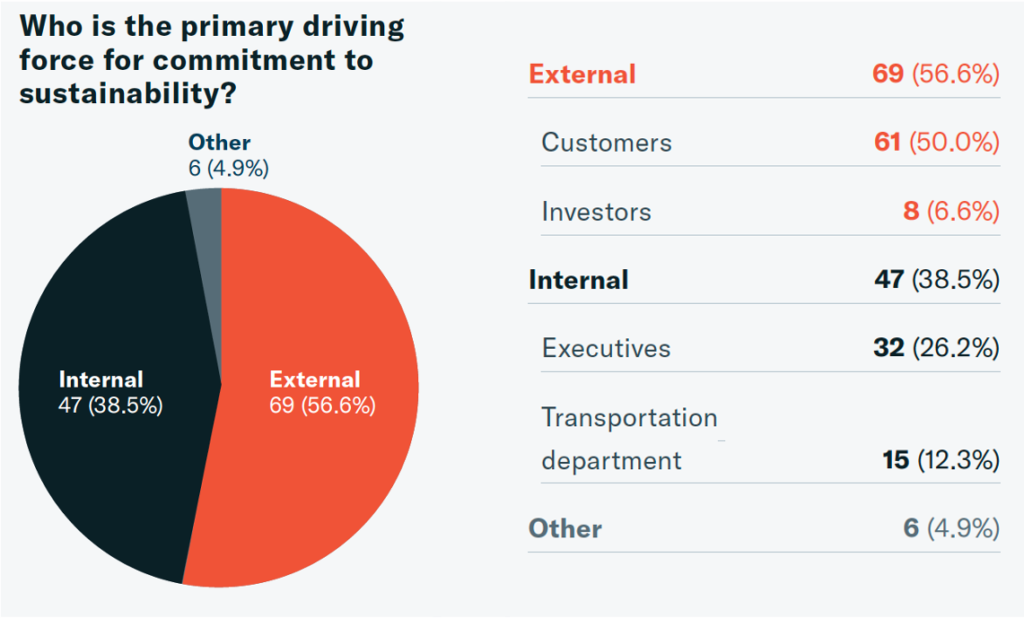
For additional information and to hear from more of our respondents, download the full State of Sustainability report for free.

